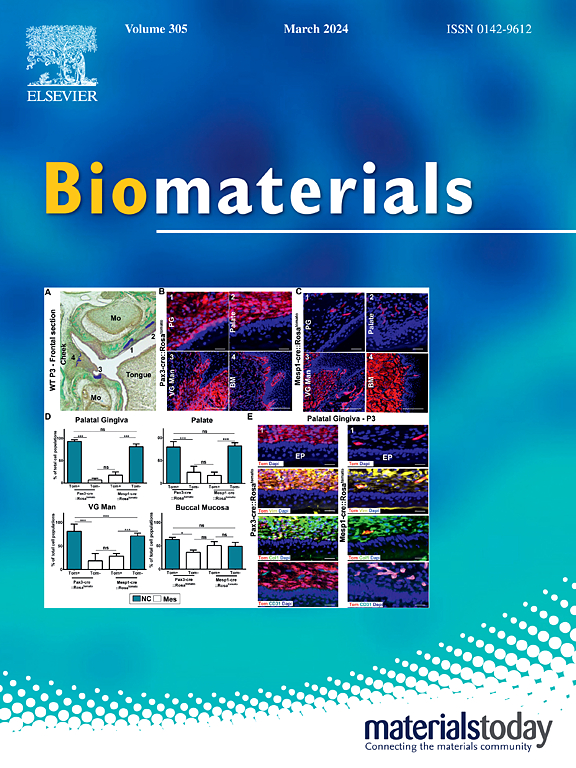Living therapeutics: Precision diagnosis and therapy with engineered bacteria
IF 12.8
1区 医学
Q1 ENGINEERING, BIOMEDICAL
引用次数: 0
Abstract
Bacteria-based therapy has emerged as a promising strategy for cancer treatment, offering the potential for targeted tumor delivery, immune activation, and modulation of the tumor microenvironment. However, the unpredictable behavior, safety concerns, and limited efficacy of wild-type bacteria pose significant challenges to their clinical translation. Recent advancements in synthetic biology and chemical engineering have enabled the development of precisely engineered bacterial platforms with enhanced controllability, targeted delivery, and reduced toxicity. This review summarize the current progress of engineered bacteria in cancer therapy. We first introduce the theoretical underpinnings and key advantages of bacterial therapies in cancer. Subsequently, we delve into the applications of genetic engineering and chemical modification techniques to enhance their therapeutic potential. Finally, we address critical challenges and future prospects, with a focus on improving safety and efficacy. This review aims to stimulate further research and provide valuable insights into the development of engineered bacterial therapies for precision oncology.
生命治疗:用工程细菌进行精确诊断和治疗
基于细菌的治疗已经成为一种很有前途的癌症治疗策略,提供了靶向肿瘤递送、免疫激活和肿瘤微环境调节的潜力。然而,野生型细菌不可预测的行为、安全问题和有限的疗效对其临床转化构成了重大挑战。合成生物学和化学工程的最新进展使精确工程细菌平台的发展具有增强的可控性,靶向递送和降低毒性。本文综述了工程菌在肿瘤治疗中的研究进展。我们首先介绍了细菌治疗癌症的理论基础和主要优势。随后,我们深入研究了基因工程和化学修饰技术的应用,以提高其治疗潜力。最后,我们讨论了关键的挑战和未来的前景,重点是提高安全性和有效性。这篇综述旨在促进进一步的研究,并为精确肿瘤学工程细菌治疗的发展提供有价值的见解。
本文章由计算机程序翻译,如有差异,请以英文原文为准。
求助全文
约1分钟内获得全文
求助全文
来源期刊

Biomaterials
工程技术-材料科学:生物材料
CiteScore
26.00
自引率
2.90%
发文量
565
审稿时长
46 days
期刊介绍:
Biomaterials is an international journal covering the science and clinical application of biomaterials. A biomaterial is now defined as a substance that has been engineered to take a form which, alone or as part of a complex system, is used to direct, by control of interactions with components of living systems, the course of any therapeutic or diagnostic procedure. It is the aim of the journal to provide a peer-reviewed forum for the publication of original papers and authoritative review and opinion papers dealing with the most important issues facing the use of biomaterials in clinical practice. The scope of the journal covers the wide range of physical, biological and chemical sciences that underpin the design of biomaterials and the clinical disciplines in which they are used. These sciences include polymer synthesis and characterization, drug and gene vector design, the biology of the host response, immunology and toxicology and self assembly at the nanoscale. Clinical applications include the therapies of medical technology and regenerative medicine in all clinical disciplines, and diagnostic systems that reply on innovative contrast and sensing agents. The journal is relevant to areas such as cancer diagnosis and therapy, implantable devices, drug delivery systems, gene vectors, bionanotechnology and tissue engineering.
 求助内容:
求助内容: 应助结果提醒方式:
应助结果提醒方式:


